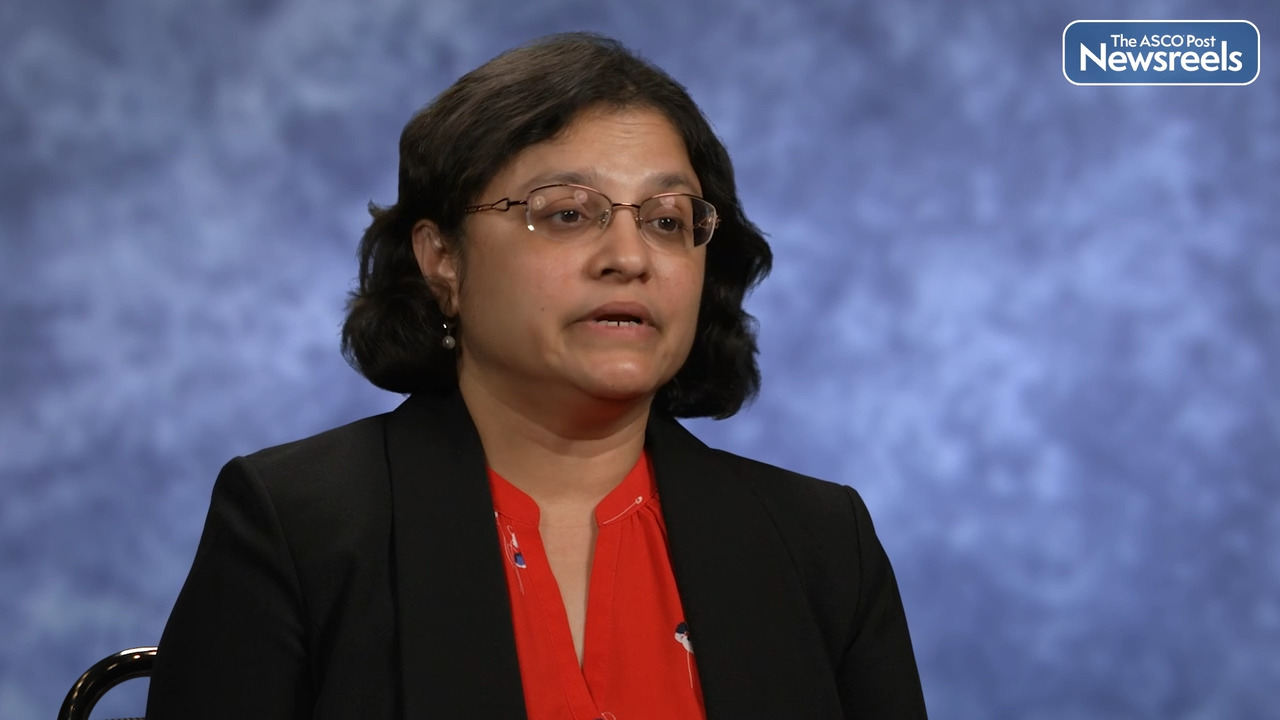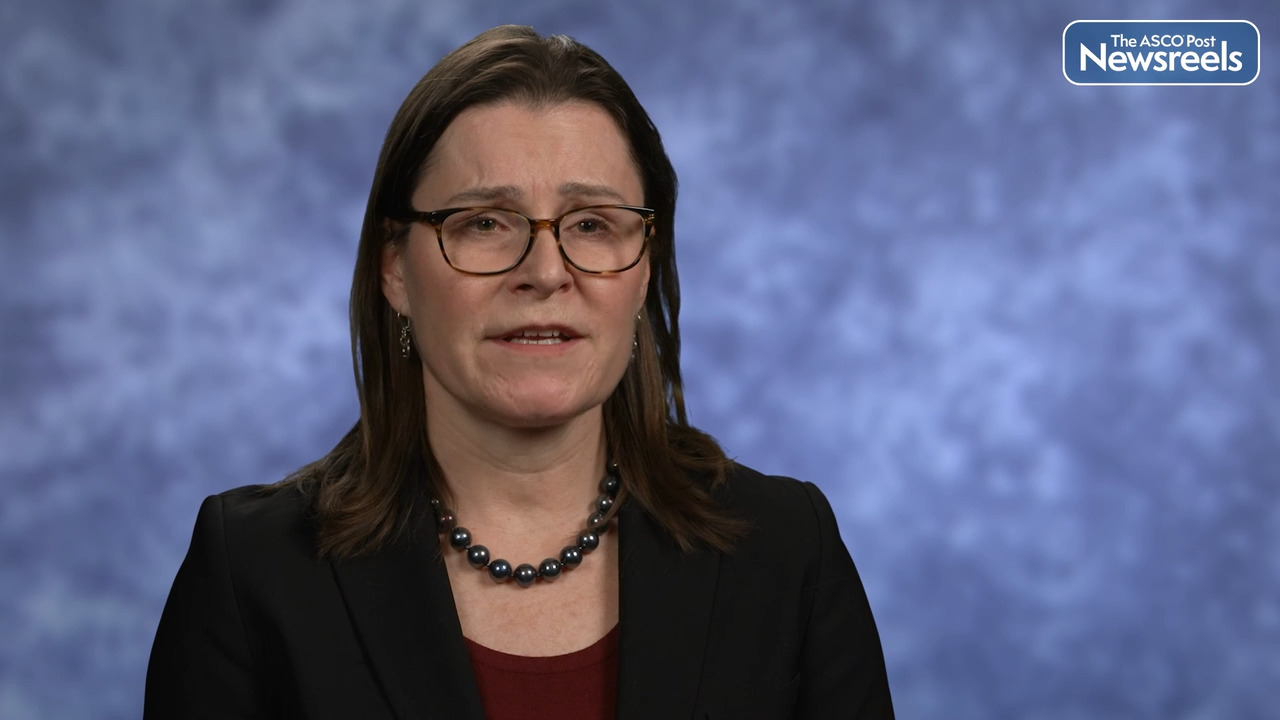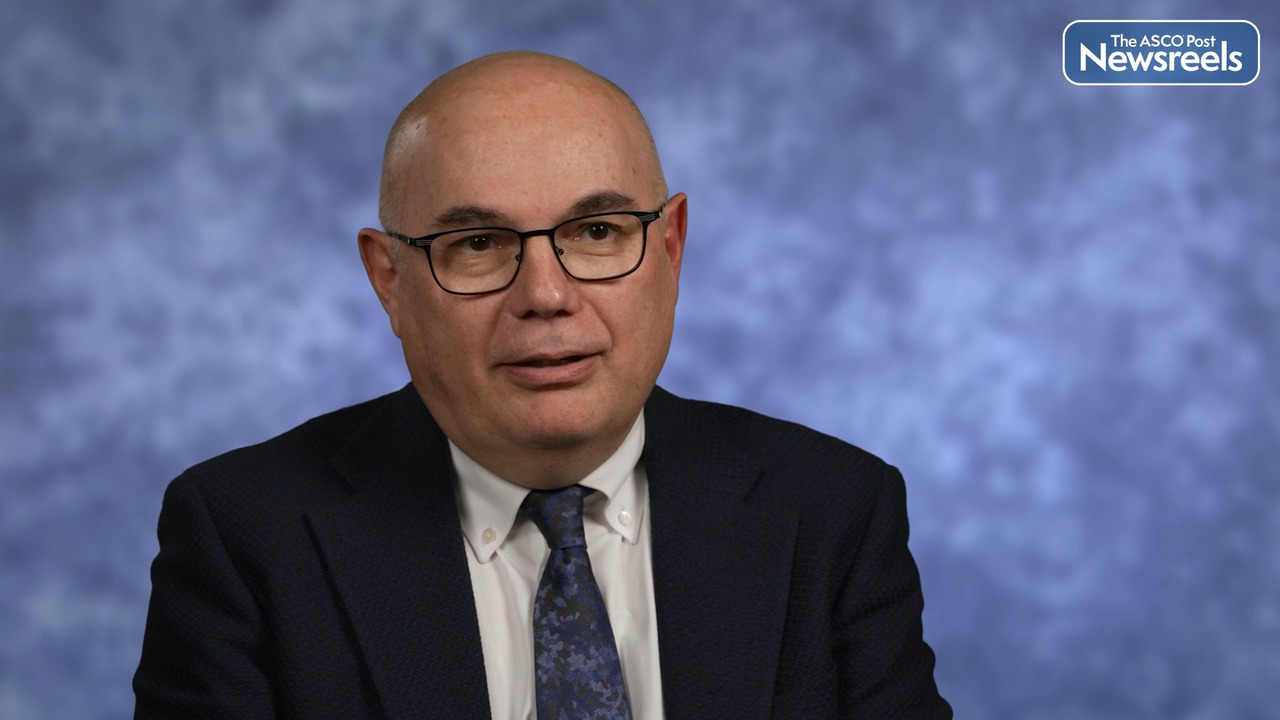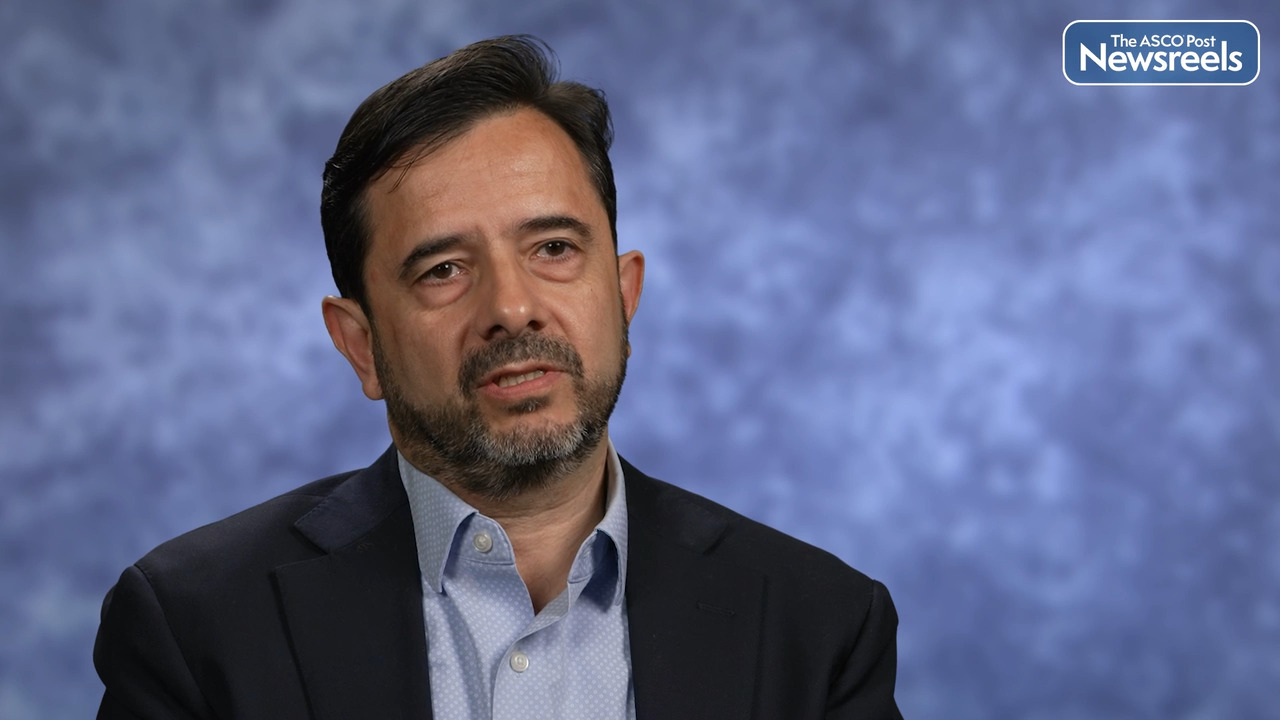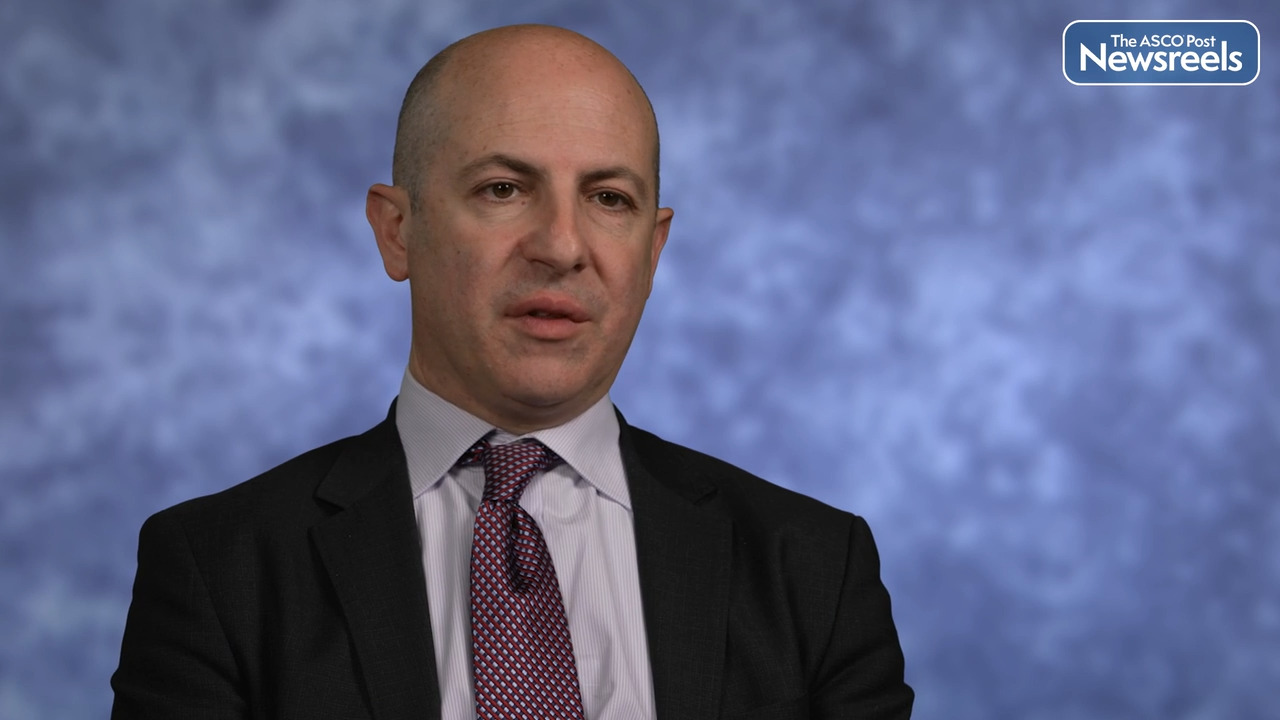Souya Nunobe, MD, PhD, on Gastric Cancer: 5-Year Follow-up on S-1 Chemotherapy for Stage II Disease
2023 ASCO Gastrointestinal Cancers Symposium
Souya Nunobe, MD, PhD, of Japan’s Cancer Institute Hospital and the Japanese Foundation for Cancer Research, discusses 5-year follow-up results of the phase III OPAS-1 trial, which compared four and eight courses of S-1, a novel oral fluoropyrimidine derivative adjuvant chemotherapy for patients with stage II gastric cancer. These final follow-up findings confirmed the benefit of S-1 and its use for 1 year to treat this population (Abstract 381).
Transcript
Disclaimer: This video transcript has not been proofread or edited and may contain errors.
Based on previous pivotal RCT, adjuvant chemotherapy of S-1 for one year for eight courses is standard treatment for pathological stage II patients who underwent D2 gastrectomy for gastric cancer. Survival of pathological stage II of patient was dramatically improved by S-1, achieving high five-year survival of 84%. So, we assume that four courses of S-1 may be a sufficient treatment and conducted JACOG1104 Phase III trial, which compared four courses and eight courses of S-1 adjuvant chemotherapy. At the first interim analysis in 2017, the present trial was terminated due to futility. Four courses of S-1 was inferior to eight courses of S-1 in terms of relapse-free survival. Here we report the final follow-up data.
Between 2012 and 2017, 519 patient were enrolled and 295 patient were allocated to each group. When the present study was terminated at the interim analysis, 27 patients of four courses were receiving S-1. Among them, 22 patients accepted the proposal to continue until eight courses. As final survival result, the RFS at five years was 85.6% for four courses and 87.7% for eight courses. The overall survival at five years was 88.6% for four courses and 89.7% for eight courses. Four courses of S-1 was [inaudible 00:02:27] inferior to eight courses of S-1 in terms of relapse-free survival.
In conclusion, this final follow-up data confirmed the primary result presented at the interim analysis. Adjuvant chemotherapy for one year or eight courses is highly recommended for pathological stage II gastric cancer.
The ASCO Post Staff
Manik A. Amin, MD, of Dartmouth Cancer Center, discusses the future of immunotherapy in gastrointestinal cancers, the challenges of creating effective adoptive cell therapies, and the next generation of immune checkpoint inhibitors.
The ASCO Post Staff
Laura A. Dawson, MD, of Canada’s Princess Margaret Cancer Centre, discusses phase III findings from the NRG/RTOG1112 study, which showed that stereotactic body radiation therapy (SBRT) administered prior to sorafenib vs sorafenib alone, improved outcomes in patients with advanced hepatocellular carcinoma. SBRT may become a new standard treatment option for patients with locally advanced disease, especially in the presence of macrovascular invasion (Abstract 489).
The ASCO Post Staff
Josep Tabernero, MD, PhD, of Spain’s Vall d’Hebron Institute of Oncology, discusses phase III findings from the SUNLIGHT study, which showed that trifluridine and tipiracil (FTD/TPI) plus bevacizumab resulted in improved outcomes compared with FTD/TPI alone in patients with refractory metastatic colorectal cancer. Improvements in survival occurred irrespective of tumor sidedness, RAS mutational status, and receipt of prior bevacizumab. This three-drug regimen may represent a new standard of care for patients whose cancer has progressed after two lines of therapy (Abstract 4).
The ASCO Post Staff
Nick Pavlakis, PhD, MBBS, of Australia’s Royal North Shore Hospital, discusses phase III findings from the INTEGRATE IIa study of regorafenib vs placebo in refractory advanced gastroesophageal cancer. The trial provides a platform for the investigation of combination therapy with an immune checkpoint inhibitor, now underway in the INTEGRATE IIb study, which is evaluating regorafenib plus nivolumab compared with standard chemotherapy in patients with this type of cancer who have received two lines of prior therapy (Abstract LBA294).
The ASCO Post Staff
Zev A. Wainberg, MD, of the UCLA School of Medicine, discusses phase III findings from the NAPOLI-3 trial, which showed that first-line NALIRIFOX (liposomal irinotecan plus fluorouracil/leucovorin plus oxaliplatin) improved overall and progression-free survival compared with nab-paclitaxel plus gemcitabine in treatment-naive patients with metastatic pancreatic ductal adenocarcinoma. The safety profile of NALIRIFOX was manageable and consistent with the profiles of each agent (Abstract LBA661).
